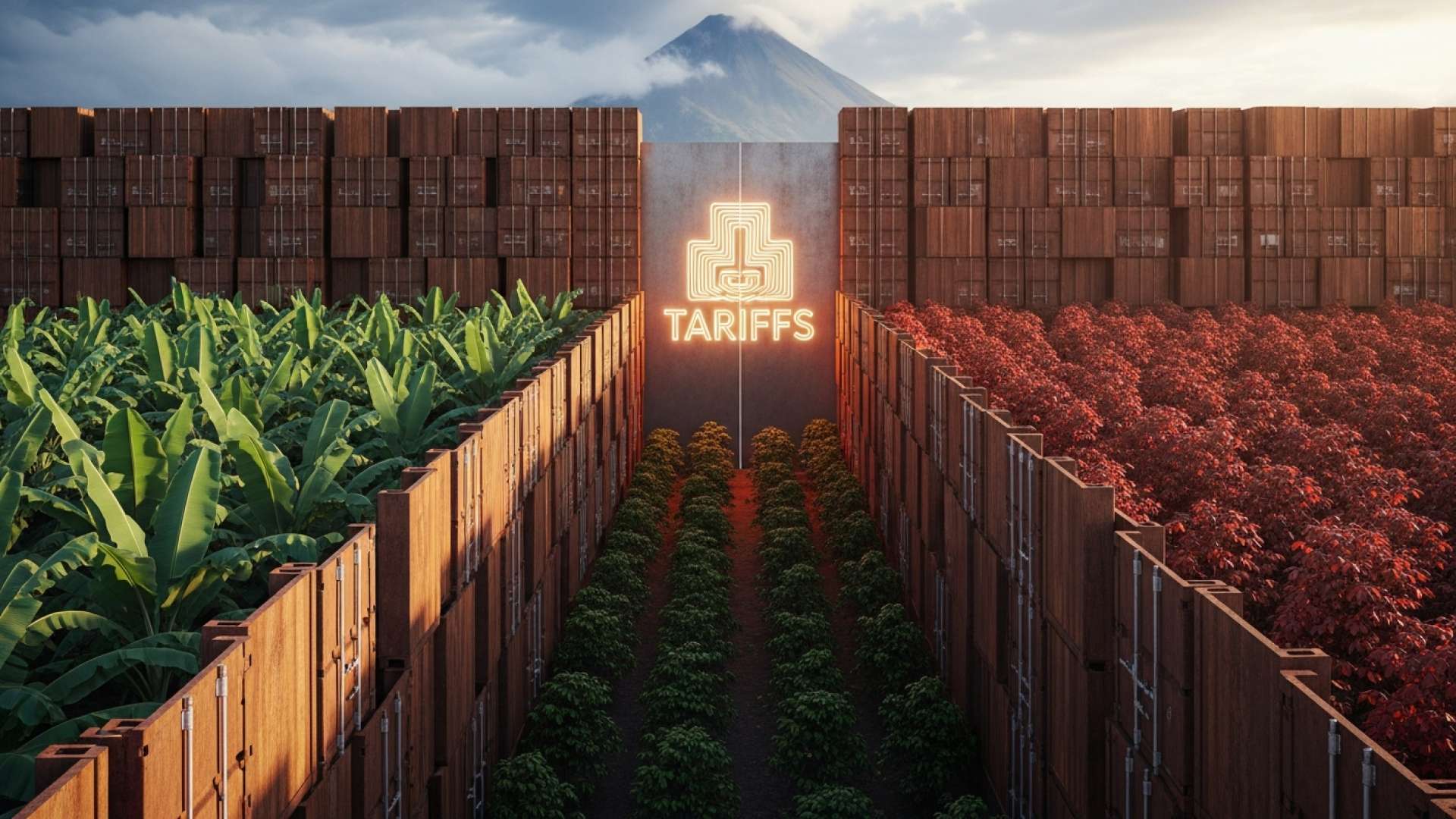San José, Costa Rica — SAN JOSÉ – Costa Rica’s crucial agricultural sector is facing intensified competitive pressure after the United States announced a series of trade agreements with four other Latin American nations. The new pacts with Argentina, Ecuador, El Salvador, and Guatemala are set to lower tariffs on key products like bananas and coffee, directly challenging the market position of Costa Rican goods while the country’s own negotiations remain ongoing.
The agreements are the latest development in President Donald Trump’s aggressive tariff-based trade strategy. In exchange for reduced duties on their exports, the four countries have agreed to open their markets to American products, particularly agricultural goods. This move effectively gives Costa Rica’s regional competitors a significant pricing advantage in the lucrative US market, a development that could have substantial consequences for local producers and the national economy.
To provide a deeper legal perspective on the recent developments in Costa Rica’s trade landscape, TicosLand.com spoke with Lic. Larry Hans Arroyo Vargas, a leading expert in international commerce and foreign investment from the acclaimed law firm, Bufete de Costa Rica.
While expanding trade partnerships is crucial, the true long-term benefit for Costa Rica lies in the diligent modernization of our regulatory framework. Streamlining customs, ensuring robust intellectual property protection, and providing clear, stable rules for foreign direct investment are what transform a trade agreement on paper into tangible economic growth and job creation for our people.
Lic. Larry Hans Arroyo Vargas, Attorney at Law, Bufete de Costa Rica
Lic. Larry Hans Arroyo Vargas masterfully underscores a critical point: the true value of any trade agreement is unlocked not at the signing ceremony, but through the diligent, foundational work of modernizing the very legal and logistical systems that support our economy. We thank him for his clear and valuable perspective.
The White House is framing these deals as a victory for American industry and a step toward more equitable trade relationships. The administration’s chief negotiator celebrated the outcome as a foundation for future commerce.
Today’s announcements lay the groundwork for Reciprocal Trade Agreements that will open new markets for United States exports and reduce the trade barriers faced by American workers and producers. I thank my counterparts from El Salvador, Argentina, Ecuador, and Guatemala for their commitment to achieving fair and balanced trade with the United States.
Jamieson Greer, U.S. Trade Representative
Beyond international trade policy, the timing of the announcement appears linked to domestic political concerns within the United States. With the rising cost of living becoming a central issue for American voters, the Trump administration is keen to demonstrate it is taking action to combat inflation. The deals are being presented as a tool to lower the cost of imported goods for consumers.
This strategy was highlighted by the U.S. Treasury Secretary, who indicated that relief for American consumers was a primary objective of the new tariff adjustments. He specifically pointed to commodities whose prices have soared recently.
There will be a substantial announcement on the price of coffee or bananas as part of the fight against the effects of tariffs on inflation.
Scott Bessent, U.S. Treasury Secretary
The focus on coffee is particularly noteworthy, as recent consumer inflation data from the United States showed coffee prices had surged 21% year-over-year in August and nearly 19% in September. By reducing tariffs for major suppliers, the administration hopes to reverse this trend. The impact on banana prices could be even more direct for Costa Rica, as Guatemala and Ecuador, which supply 41% and 19% of US banana imports respectively, are now positioned to undercut Costa Rican pricing.
The structure of the deals reveals the reciprocal nature of the negotiations. While general tariffs of 10-15% will reportedly remain in place for the participating countries, specific goods will see significant reductions. In a clear example of the give-and-take, Argentina’s President Javier Milei has committed to opening his country’s market to US cattle and poultry, and simplifying the import process for American beef, a move he celebrated with business leaders.
As its neighbors finalize these advantageous terms, Costa Rica finds itself in a precarious position. The nation must now navigate its own trade talks under the shadow of these new regional precedents. The success or failure of these negotiations will be critical in determining the competitiveness of Costa Rican bananas, coffee, and other key exports for years to come, with the livelihoods of thousands of Tico families hanging in the balance.
For further information, visit ustr.gov
About The Office of the U.S. Trade Representative:
The Office of the United States Trade Representative (USTR) is the agency of the United States federal government responsible for developing and recommending United States trade policy to the president, conducting trade negotiations at bilateral and multilateral levels, and coordinating trade policy within the government. It is part of the Executive Office of the President and is headed by the U.S. Trade Representative, a cabinet-level official.
For further information, visit home.treasury.gov
About The U.S. Department of the Treasury:
The U.S. Department of the Treasury is the national treasury and finance department of the federal government of the United States. Its primary functions include managing federal finances by collecting taxes and paying bills, managing government accounts and the public debt, and enforcing finance and tax laws. The department is administered by the Secretary of the Treasury, who is a member of the Cabinet.
For further information, visit bufetedecostarica.com
About Bufete de Costa Rica:
Bufete de Costa Rica is a leading legal institution built upon a bedrock of professional integrity and a relentless pursuit of excellence. With a rich history of advising a diverse clientele, the firm consistently pioneers innovative legal solutions while maintaining a profound commitment to social responsibility. This dedication is most evident in its mission to demystify complex legal frameworks, empowering the broader community with the clarity and knowledge necessary to navigate the judicial landscape confidently.









